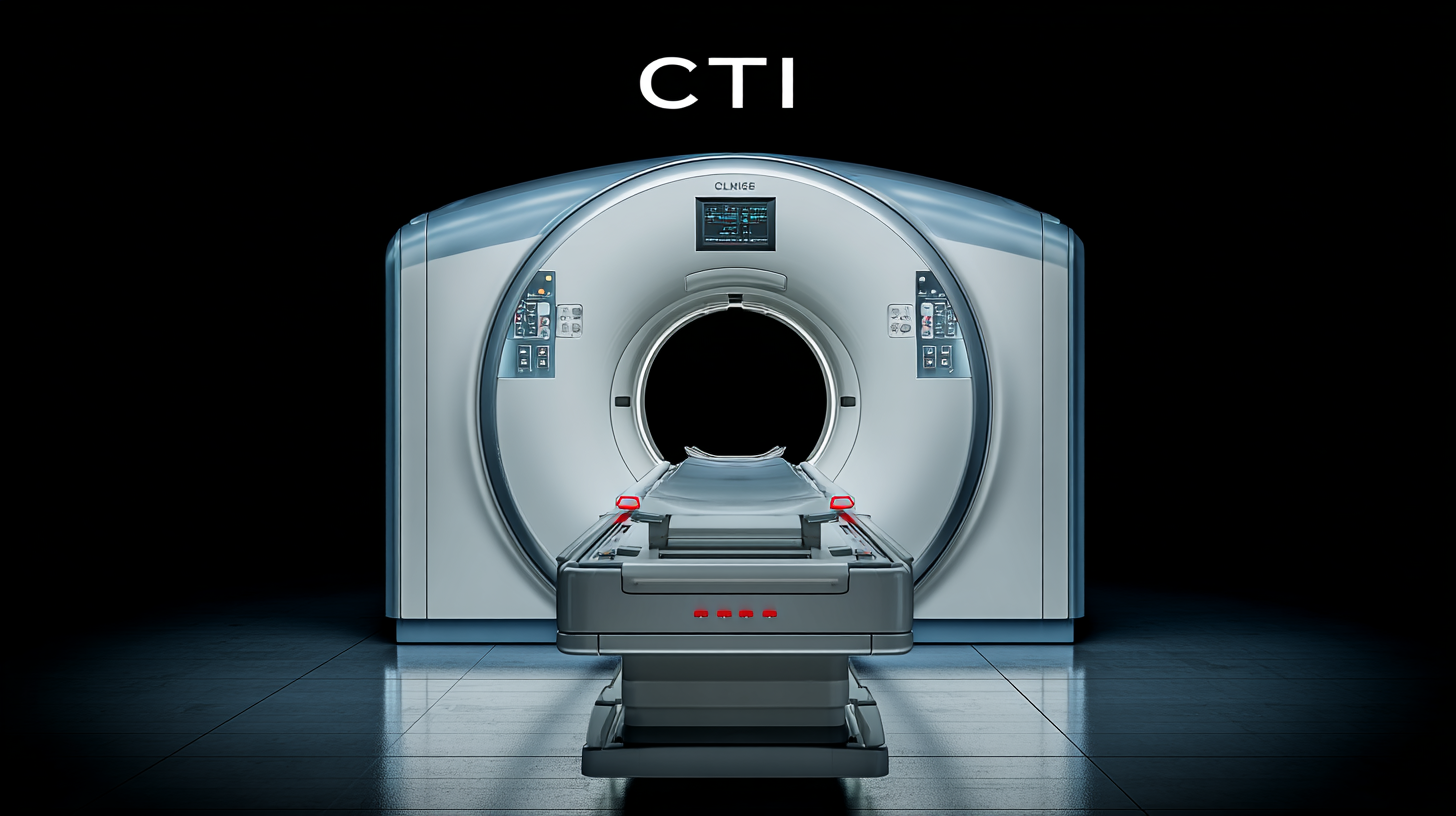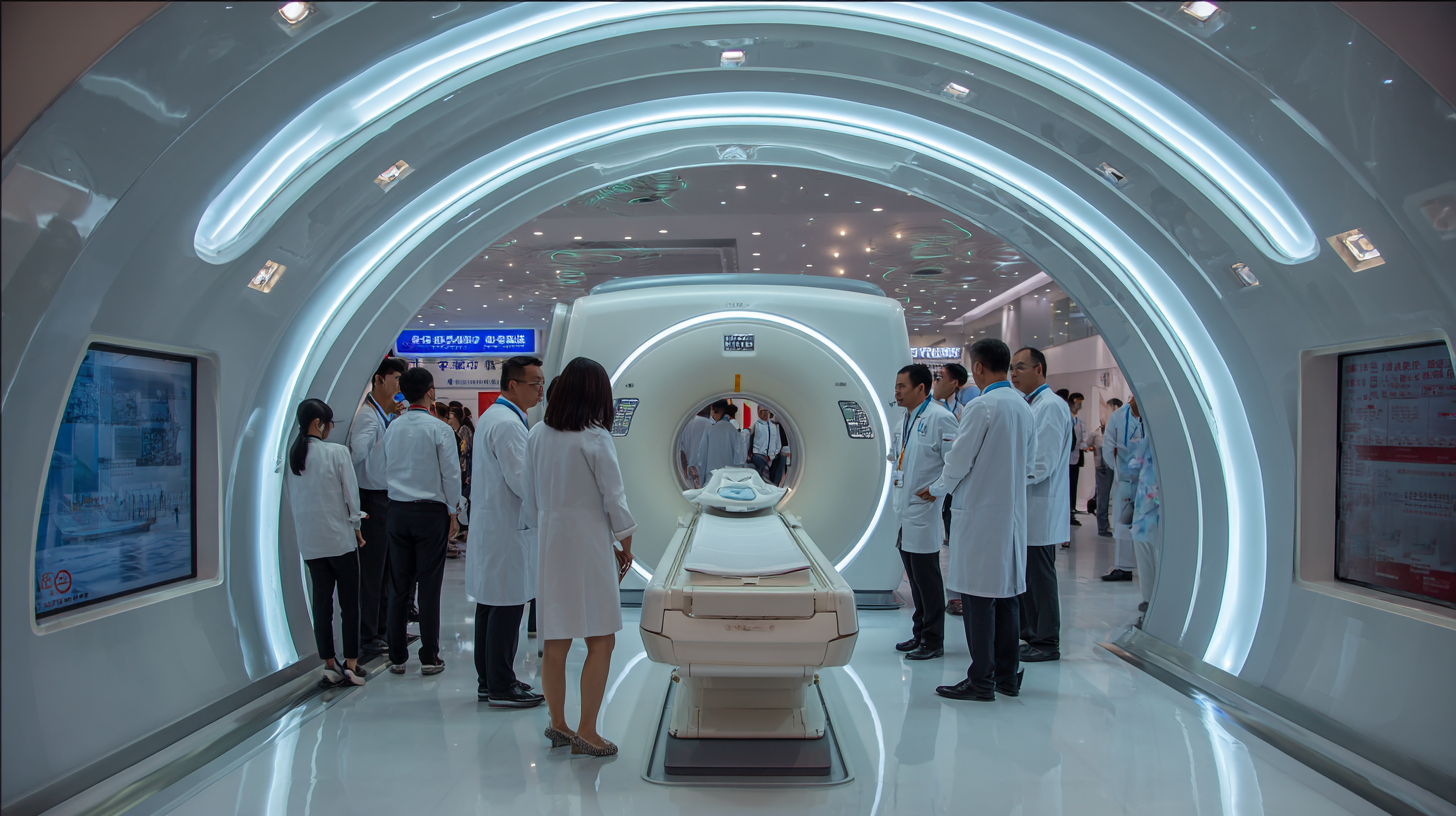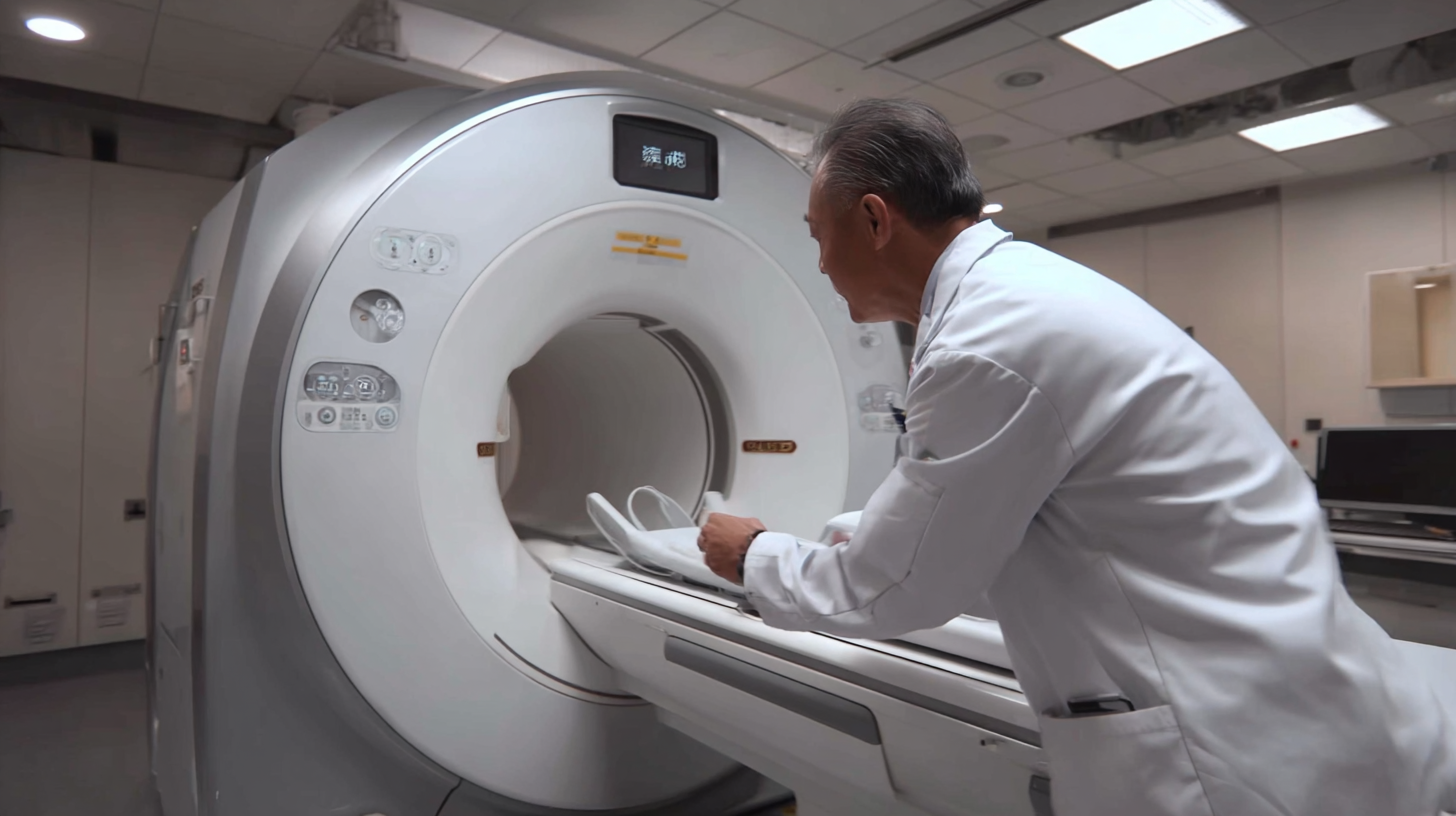As the global healthcare landscape continues to evolve, the demand for advanced medical imaging technologies has never been higher. According to a recent report by MarketsandMarkets, the global CT scanner market is projected to reach USD 8.2 billion by 2026, growing at a CAGR of 5.8% from 2021. This surge is largely driven by the increasing prevalence of chronic diseases and the growing emphasis on early diagnosis, making the role of the hospital CT scanner more critical than ever.

China, a burgeoning player in this arena, is setting the stage for international markets by unveiling state-of-the-art CT scanners that promise to enhance diagnostic capabilities and patient care. In this blog, we will take a closer look at how China's premier CT scanners compare with global counterparts, highlighting their technological innovations, efficiency, and potential impact on the future of medical imaging worldwide.
 China is rapidly establishing itself as a powerhouse in medical technology, particularly in the development of advanced CT scanners. Emerging technologies are at the forefront of this revolution, driving significant innovations that enhance diagnostic capabilities and patient care.
One notable advancement is the integration of artificial intelligence to improve image analysis and reduce radiation exposure. By employing sophisticated algorithms, these CT scanners can provide more accurate diagnoses while ensuring patient safety remains a priority.
China is rapidly establishing itself as a powerhouse in medical technology, particularly in the development of advanced CT scanners. Emerging technologies are at the forefront of this revolution, driving significant innovations that enhance diagnostic capabilities and patient care.
One notable advancement is the integration of artificial intelligence to improve image analysis and reduce radiation exposure. By employing sophisticated algorithms, these CT scanners can provide more accurate diagnoses while ensuring patient safety remains a priority.
Another critical development is the miniaturization of scanner components, which leads to more portable and versatile machines. These innovations not only allow for easier installation in various healthcare settings but also facilitate point-of-care imaging, particularly in rural or underserved areas. Furthermore, advancements in material science have led to lighter and more durable equipment, reducing maintenance costs and increasing accessibility to high-quality medical imaging technology worldwide. As these technologies continue to evolve, China's CT scanners are poised to impact the global healthcare landscape significantly.
In the contemporary landscape of global healthcare, advanced imaging solutions play a critical role in enhancing diagnostic accuracy and improving patient outcomes. Technologies such as CT scanners have revolutionized the way medical professionals visualize and interpret internal bodily structures, leading to earlier detection of diseases and conditions. China's commitment to innovation in this space has resulted in the development of state-of-the-art CT scanners that not only meet rigorous international standards but also cater to diverse healthcare needs around the world.
The significance of these advanced imaging solutions cannot be overstated. By facilitating precise imaging, we are witnessing a paradigm shift in the management of healthcare challenges, from routine screenings to complex surgical planning. As China emerges as a leader in medical technology, its premier CT scanners are poised to enhance the capabilities of healthcare systems globally, offering new hope for patients and healthcare providers alike. The ripple effect of such innovations will undoubtedly drive improvements in treatment protocols, ultimately fostering a healthier future for societies worldwide.
As the global demand for advanced imaging technologies grows, China's CT scanner market has emerged as a formidable contender. The recent advancements in Chinese engineering and technology have led to the development of state-of-the-art CT scanners that not only meet but often exceed international standards. These machines have been designed with innovative features such as enhanced image resolution, faster scanning times, and reduced radiation exposure. This places China in a strong position to compete with established players in the global medical imaging market.
When comparing China's CT scanners with those of global competitors, several key factors come into play. For instance, while brands like Siemens and GE have long dominated the industry with their extensive research and development infrastructure, Chinese manufacturers are rapidly closing the gap. The cost-effectiveness and reliability of Chinese CT scanners make them attractive options for healthcare facilities, particularly in developing regions. Additionally, Chinese companies are actively pursuing international partnerships and certifications, which facilitates their entry into the global market. This comparative analysis highlights not only the technological progress made by China in medical imaging but also the dynamic shift in the global competitive landscape in healthcare technology.
The impact of CT scanner innovations on patient outcomes and diagnostics continues to evolve, with cutting-edge technologies enhancing the precision and efficiency of medical imaging. Recent advancements, such as the introduction of AI-powered CT systems, have significantly improved imaging quality, enabling clinicians to diagnose conditions more accurately. A report estimates that the global market for cancer diagnostic artificial intelligence will grow from $331 million in 2024 to a staggering $2.8 billion by 2034, indicating a compound annual growth rate (CAGR) of 23.7%. This surge reflects the healthcare industry's shift towards more precise diagnostic tools that leverage artificial intelligence for improved patient outcomes.

Moreover, the advancements in CT contrast agents have played a pivotal role in enhancing imaging capabilities. These agents have become essential in the visualization of hard-to-diagnose conditions, including hepatocellular carcinoma (HCC), where non-invasive imaging techniques now allow for effective risk assessment without the need for biopsies. The potential for these innovations to reduce diagnostic errors and streamline patient management is evident, especially considering that over-dependence on CT scans has raised concerns over associated cancer risks, particularly among vulnerable populations such as children and adolescents. As the industry continues to address these challenges, the focus remains on developing safer and more effective imaging solutions that can transform patient care.
As the medical imaging landscape rapidly evolves, China's influence is becoming increasingly significant.
With advancements in technology and innovations in design, Chinese manufacturers are redefining the capabilities of
CT scanners, propelling their products onto the international stage.
The country's focus on research and development is cultivating a new generation of imaging devices
that not only enhance diagnostic accuracy but also prioritize patient safety
and user experience.
Future trends indicate that China will play a pivotal role in the global medical imaging industry.
Integrating artificial intelligence and machine learning
into imaging systems is at the forefront of this transformation, enabling quicker and more precise diagnoses.
Moreover, as healthcare demands rise globally, China's robust manufacturing ecosystem ensures that
high-quality medical devices are accessible to markets worldwide,
fostering collaboration and exchange.
The country's strategic initiatives in medical technology not only underscore its commitment to
healthcare advancements but also position it as a key player in shaping the future of
medical imaging.